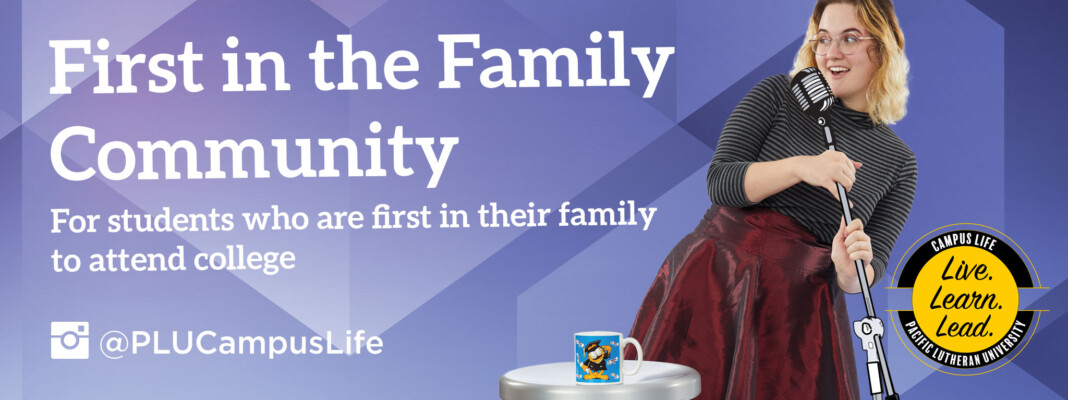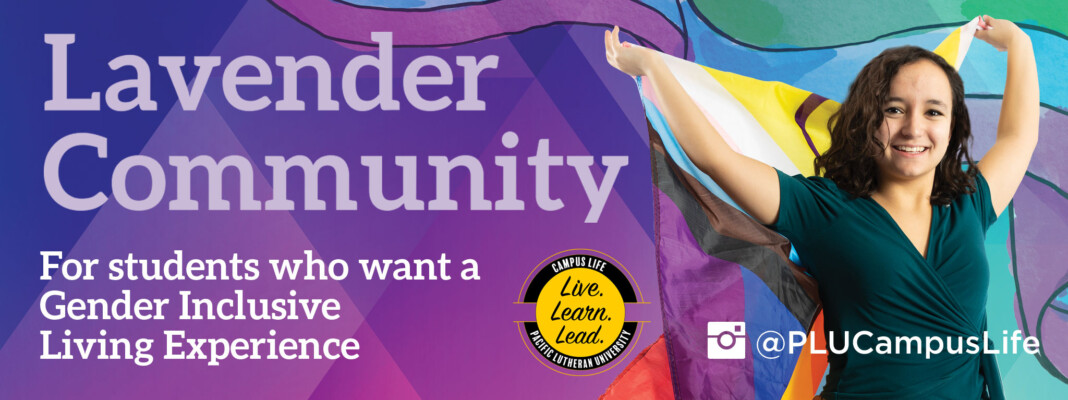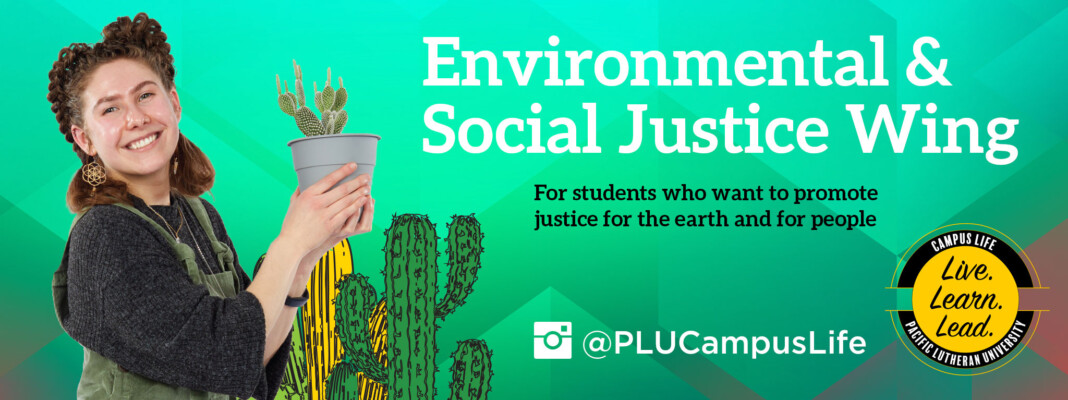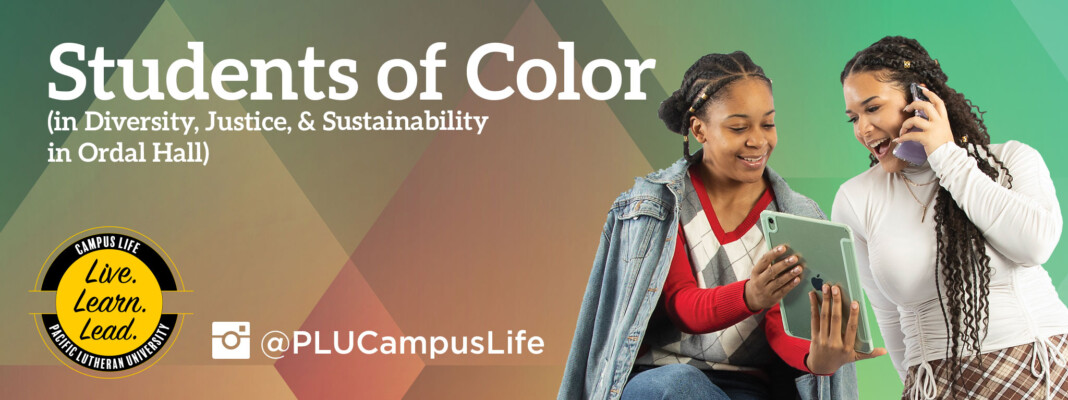About Diversity, Justice, and Sustainability (DJS) Community
Explore Identity. Become an Advocate for Positive Social and Environmental Change.
The Diversity, Justice, and Sustainability (DJS) community seeks to create a safe, supportive, and diverse environment that challenges students to explore social justice issues and begin the work towards equity as engaged citizens on both local and global levels. The DJS community promotes opportunities for students to challenge themselves to learn and act in ways that make a difference in the lives of others. The DJS community is an exciting opportunity to meet new people, learn about yourself, explore issues of injustice, and serve as agents for change within your communities. Students will be able to have the added value of relationships with faculty/staff and collaboration with the Center for Diversity, Justice, and Sustainability.
Great For Students Who ...
- are interested in gaining an increased understanding of their cultural identities through reflection on value
- want to learn more about basic concepts of social justice
- are interested in learning how to create positive change in their hall, PLU, the greater Tacoma community and beyond
Program + Learning Outcomes
By participating in Diversity, Justice, and Sustainability (DJS) community, students will:
- develop an increased understanding of their own cultural identity through critical reflection of their beliefs, values, attitudes and emotions
- be involved in discussions, programs, and leadership development around the concept of social action
- recognize their voices as leaders
- be able to identify ways to take action at PLU, our greater Tacoma community, and beyond to enact positive change

Community Information
Linked Residence Hall:
Ordal Hall
Community Director
Dream Gonzales
CD Email:
dgonzales@plu.edu
The DJS community comprises four intersectional sub-communities:
First in Your Family. First Year at PLU.
The First in the Family community supports with first-generation students in their transition to PLU to promote academic success in their first year. PLU’s Admission Office defines “first generation” as: neither parent graduated from a four-year, degree-granting institution within the U.S. While students reside in the Community, they will develop their own definition of what it means to be a first-generation college student. Additionally, they will explore how their first-generation identity intersects with other identities, as well as how their identity affects their college experience.
Great For Students Who…
- are the first in their families to attend college (first-generation students whose parents did not graduate from a four-year, degree-granting institution in the U.S.)
- want to connect with resources that support their success in and out of the classroom during their transition to PLU
Program + Learning Outcomes
By participating in First in the Family, students will be able to:
- engage in opportunities to understand what it means to be a first-generation college student
- share experiences about obstacles faced and how to overcome such challenges
- build relationships with other first generation students, faculty, staff, and alumni
- participate in programming that supports college transition and success in their first year at PLU
Additional Resources for First Generation College Students
Promote Justice for the Earth & for People. Become an Advocate for Positive Social Change.
The Environmental & Social Justice (ESJ) community seeks to create a safe, supportive, and diverse environment that challenges students to explore social and environmental justice issues and begin the work towards equity as engaged citizens on both local and global levels. ESJ promotes opportunities for students to challenge themselves to learn and act in ways that make a difference in the lives of others. The ESJ community is an exciting opportunity to meet new people, learn about yourself, explore issues of injustice, and serve as agents for change within your communities. Students will be able to have the added value of relationships with faculty/staff and collaboration with the Center for Diversity, Justice, and Sustainability.
Great For Students Who …
- are interested in gaining an increased understanding of their values through reflection on
- want to learn more about the intersectional concepts of environmental and social justice
- are interested in learning how to create positive change in their communities and at PLU
Program + Learning Outcomes
- be involved in discussions, programs, and leadership development around the concept of social and environmental action
- recognize their voices as leaders
- be able to identify ways to take action on our campus and our greater Tacoma community to enact positive change
For Students Who Are Interested in LGBTQ+ Histories, Communities, and Activism
The Lavender Community seeks to honor, celebrate, and uplift the lived experiences of LGBTQ+ students. The community seeks to bring LGBTQ+ identified students and allies together in community to share their hopes, dreams, and challenges. Through programming, the Lavender Community invites participants to learn more about how social identities intersect here at PLU and beyond. Through volunteer opportunities participants are encouraged to connect with LGBTQ+ communities in the broader Tacoma area.
The significance of “Lavender”
Lavender Graduation Ceremonies are held across the country every year. The origin of the term “lavender” has many variations. According to the Human Rights Campaign (HRC), lavender is a combination of the pink triangle that gay men were forced to wear in concentration camps and the black triangle designating lesbians as political prisoners in Nazi Germany. The LGBTQ civil rights movement took these symbols of hatred and combined them to make symbols and color of pride and community. To learn more about Lavender Graduation, please visit: Lavender Graduation.
There are other narratives that speak to the importance of the color lavender. One such narrative is that lavender is a blend of the traditionally gender-identified colors pink and blue. Lavender blurs these two lines and subverts and challenges gender norms. For more information, please see the following student article from the Dallas News.
Great For Students Who …
- who are interested in gender equity and gender-spectrum inclusion
- who are interested in talking about gender and sexual identities
- for whom their sex assigned at birth does not match their gender identity
Program + Learning Outcomes
- explore linkages across personal lived experiences and theoretical concepts of gender and sexuality
- increase their knowledge and awareness of topics from evolving language to bias incidents to current events
- have increased access to peers and faculty outside of the classroom to support their learning about social justice and identity development
For Students of Color interested in exploring their racial and ethnic identities.
The SOC community focuses on the cultural wealth Students of Color bring to the Pacific Lutheran community by celebrating their linguistic and familial capital.
Campus Life, in partnership with the Center for DJS, student groups such as ‘the collective’, and individual residents listened to feedback about sense of belonging of Students of Color in the Residence Halls. A common narrative that emerged was the need for affinity space. A huge part of the value added of spaces such as the Center for DJS or the Students of Color retreat, and now the Students of Color (SOC) floor, is that these are places where Students of Color, who are nearly always the minority in other spaces on PLU’s predominantly white campus, can be together with other students who have similar experiences of being a minority on campus.
In solidarity with the Students of Color retreat held every year by the Center for DJS, the SOC community is a place where residents are invited to explore the intersectionality of identities and learn from one another in order to build a sustainable community. All students who self-identify as a Student of Color and would like to genuinely participate in the community are welcome and encouraged to apply.
Great For Students Who …
- Enjoy studying and/or talking about social justice and social identities related to race and ethnicity
- Are interested in participating in the Diversity, Justice and Sustainability (DJS) community and related co-curricular activities with the other two DJS sub-communities (i.e., First in the Family and Environmental & Social Justice)
Program + Learning Outcomes
- productively engage in DJS-related activities that support their own racial/ethnic identity development
- participate in DJS-related activities outside of the classroom that promote social justice
- have increased access to peers and faculty outside of the classroom to support their learning about social justice and identity development







Social Media